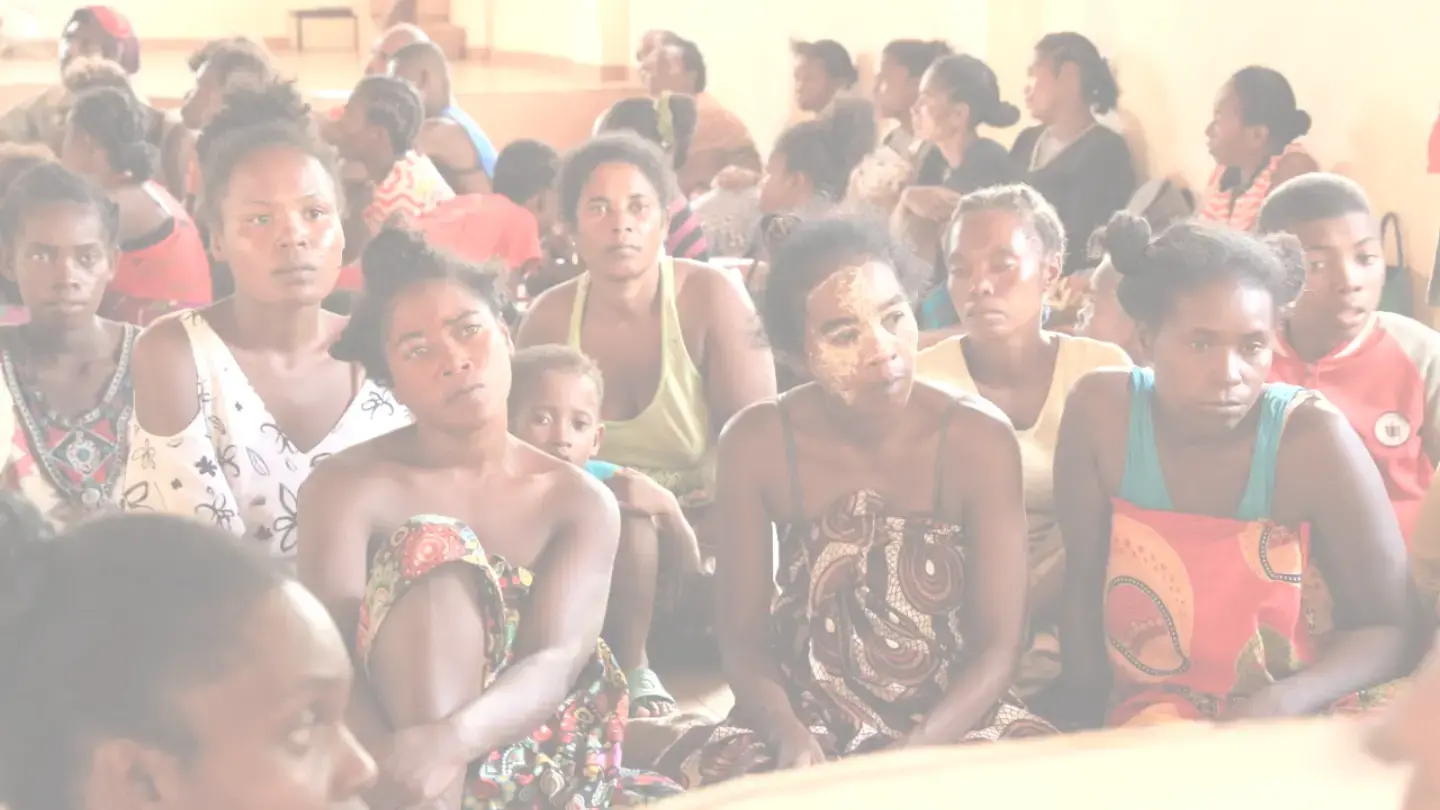- Cyclone Honde – 28 February 2025
- Cyclone Jude – 14 March 2025
Situation Overview
- Severe Tropical Storm Jude
On 14 March 2025, storm Jude made landfall in Southern Madagascar, affecting 4 regions, 14 districts, and 49 communes, just days after Cyclone Honde. According to the National Risk and Disaster Management Office (BNGRC) bulletin on 16 March:
- 41,141 people affected
- 27,000+ displaced across 24 sites
- 1,160+ homes destroyed
- 4 health centers damaged
Strong winds and heavy swells impacted the southern and western coasts, raising risks of shipwrecks and coastal flooding. Road infrastructure was severely disrupted, hindering access. In response to this crisis, the authorities and humanitarian partners, including UNFPA, have deployed emergency measures such as evacuations, mobile clinics, and food distributions to assist affected populations. Efforts are underway to restore access to drinking water and electricity. Meteorological monitoring remains active, and people are urged to follow safety guidelines to minimize the impact of the phenomenon.
- Severe Tropical Storm Honde
Tropical Cyclone Honde skirted the southern coast of Madagascar on February 28, 2025, with an unusually large central zone that severely affected the southwestern and southern regions of the island. This phenomenon brought heavy rainfall, causing major flooding and intense storm surges, leading to seaside floods and destruction, and damaging 11 health facilities. It is worth noting that Honde is the third cyclone to hit Madagascar this season, following Chido and Dikeledi.
On March 4, 2025, the passage of Cyclone Honde left a heavy toll: 8 deaths were reported in Bekily (3), Betroka (1), Morondava (1), and Ampanihy Ouest (3); 1 person was reported missing in Belo sur Tsiribihina; 88 people were injured and required medical care; and 99,890 individuals, representing 23,483 households were directly affected, with 22,020 people displaced and accommodated across 75 shelters set up by authorities and humanitarian actors.
In the face of this critical situation, a rapid and coordinated response is essential to (i) provide humanitarian assistance, (ii) accelerate the rehabilitation of damaged infrastructures, and (iii) protect the most vulnerable populations.


